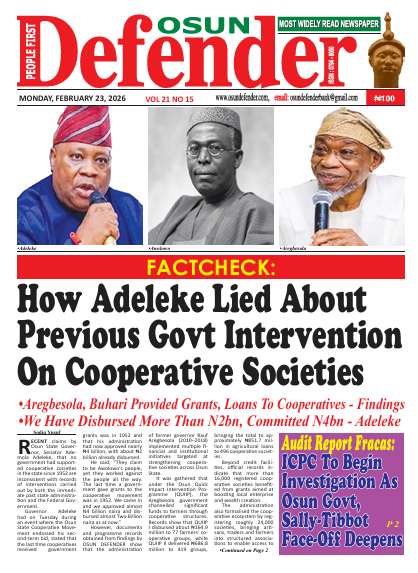Dates For End Of Ramadan, Eid ul-Fitr Celebration In Nigeria Revealed

Ramadan, the sacred month in Islam, will end on April 8 or 9, 2024, according to the Nigerian Supreme Council for Islamic Affairs (NSCIA).
Hence, by calculation, the Eid ul-Fitr celebration will be on April 9 or 10, 2024, depending on when the crescent of Shawwal 1445 is sighted.
The culmination of Ramadan and the ensuing Eid ul-Fitr celebration hold profound significance within the Islamic faith, especially in Nigeria. Ramadan stands as a pillar of devotion and spiritual rejuvenation, fostering self-discipline, empathy, and connection with the Almighty. Its conclusion heralds the joyous occasion of Eid ul-Fitr, a time of gratitude, communal bonds, and charitable deeds. In Nigeria, where Islam is deeply rooted, these observances are imbued with cultural richness and fervor.
Throughout Ramadan, Nigerian Muslims diligently fast from dawn till dusk, abstaining not only from food and drink but also from negative thoughts and actions. This fasting fosters empathy for the less fortunate, promoting a sense of solidarity within the community. Nigerian Muslims approach Ramadan with reverence, viewing it as an opportunity for purification and self-improvement.
The Nigerian Muslim community’s observance of Ramadan extends beyond fasting. It entails increased prayers, Quranic recitation, and acts of charity. Mosques across the nation bustle with worshippers engaged in nightly prayers and spiritual reflection. Families gather for pre-dawn meals, known as Suhoor, and break their fast together at sunset, or Iftar, strengthening familial bonds and communal ties.
As the end of Ramadan approaches, anticipation mounts for the sighting of the Shawwal crescent, which determines the precise date of Eid ul-Fitr. The Nigerian Supreme Council for Islamic Affairs (NSCIA) plays a pivotal role in confirming this date, ensuring unity and coherence in the celebration nationwide. Once the crescent is sighted, joyous preparations ensue, with communities eagerly anticipating the festivities ahead.
Eid ul-Fitr in Nigeria is a vibrant affair, marked by prayers, feasting, and acts of generosity. Muslims gather in mosques and open spaces for special Eid prayers, seeking divine blessings and expressing gratitude for the spiritual growth achieved during Ramadan. The atmosphere resonates with the exuberance of communal celebration, as families and friends exchange greetings and well-wishes.
Central to the Eid ul-Fitr celebration in Nigeria is the tradition of giving Zakat al-Fitr, a form of charity intended to purify one’s fast and assist those in need. Nigerian Muslims generously contribute to this cause, ensuring that the less fortunate can partake in the joyous festivities.
Additionally, Eid ul-Fitr is a time for indulgence in culinary delights, with homes adorned with sumptuous feasts and traditional delicacies.
Beyond its religious significance, Eid ul-Fitr holds profound cultural importance in Nigeria, uniting people of diverse backgrounds in shared celebration. The festival transcends religious boundaries, fostering harmony and mutual respect among communities. In bustling cities and rural villages alike, the spirit of Eid permeates the air, weaving a tapestry of joy and togetherness.
Moreover, Eid ul-Fitr serves as a time for reconciliation and forgiveness, as individuals set aside differences and embrace the spirit of compassion and goodwill. It is a moment for reflection on the values of mercy and forgiveness espoused by Islam, guiding believers towards greater empathy and understanding.
In conclusion, the announcement of the end of Ramadan and the forthcoming Eid ul-Fitr celebration in Nigeria holds profound significance for the Muslim community. These occasions serve as pillars of faith and unity, fostering spiritual growth, communal bonds, and acts of benevolence. Through fasting, prayer, and charitable deeds, Nigerian Muslims uphold the essence of Ramadan, culminating in the joyous festivities of Eid ul-Fitr, which resonate with cultural richness and shared celebration across the nation.

Sodiq Lawal is a passionate and dedicated journalist with a knack for uncovering captivating stories in the bustling metropolis of Osun State and Nigeria at large. He has a versatile reporting style, covering a wide range of topics, from politics , campus, and social issues to arts and culture, seeking impact in all facets of the society.









